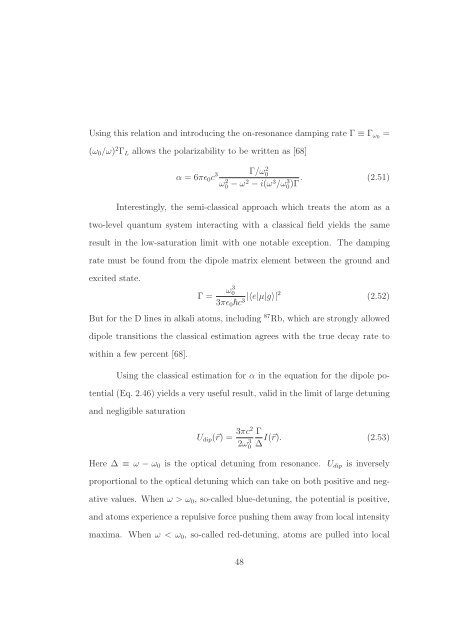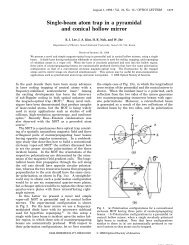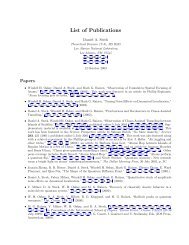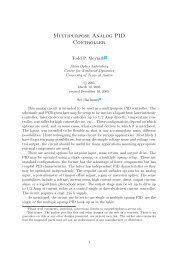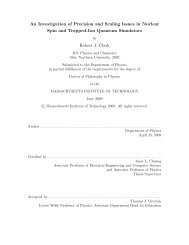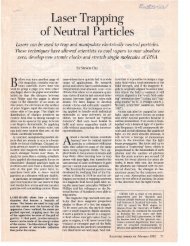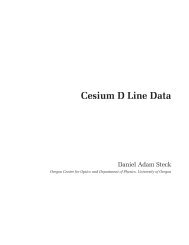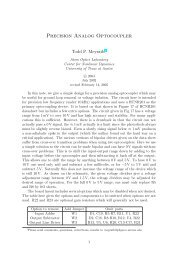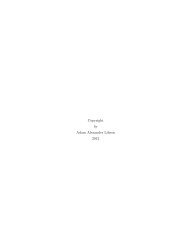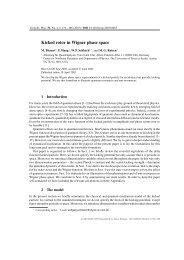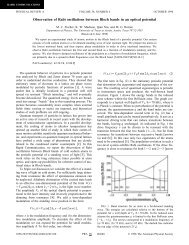Single-Photon Atomic Cooling - Raizen Lab - The University of ...
Single-Photon Atomic Cooling - Raizen Lab - The University of ...
Single-Photon Atomic Cooling - Raizen Lab - The University of ...
Create successful ePaper yourself
Turn your PDF publications into a flip-book with our unique Google optimized e-Paper software.
Using this relation and introducing the on-resonance damping rate Γ ≡ Γω0 =<br />
(ω0/ω) 2 ΓL allows the polarizability to be written as [68]<br />
Γ/ω 2 0<br />
α = 6πǫ0c 3<br />
ω2 0 − ω2 − i(ω3 /ω3 . (2.51)<br />
0)Γ<br />
Interestingly, the semi-classical approach which treats the atom as a<br />
two-level quantum system interacting with a classical field yields the same<br />
result in the low-saturation limit with one notable exception. <strong>The</strong> damping<br />
rate must be found from the dipole matrix element between the ground and<br />
excited state.<br />
Γ = ω3 0<br />
|〈e|µ|g〉|2<br />
3πǫ0c3 (2.52)<br />
But for the D lines in alkali atoms, including 87 Rb, which are strongly allowed<br />
dipole transitions the classical estimation agrees with the true decay rate to<br />
within a few percent [68].<br />
Using the classical estimation for α in the equation for the dipole po-<br />
tential (Eq. 2.46) yields a very useful result, valid in the limit <strong>of</strong> large detuning<br />
and negligible saturation<br />
Udip(r) = 3πc2<br />
2ω 3 0<br />
Γ<br />
I(r). (2.53)<br />
∆<br />
Here ∆ ≡ ω − ω0 is the optical detuning from resonance. Udip is inversely<br />
proportional to the optical detuning which can take on both positive and neg-<br />
ative values. When ω > ω0, so-called blue-detuning, the potential is positive,<br />
and atoms experience a repulsive force pushing them away from local intensity<br />
maxima. When ω < ω0, so-called red-detuning, atoms are pulled into local<br />
48


